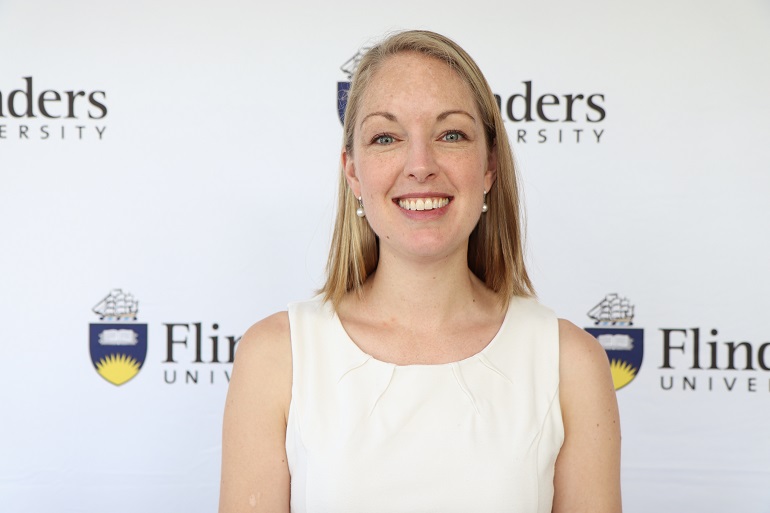
New research from Flinders Caring Futures Institute is encouraging older adults who are hospitalised to be more active during their stay and when they return home, in a project which aims to establish whether a specially-designed intervention can be feasibly rolled out across Australian healthcare settings.
Bolstered by a Flinders Foundation Health Seed Grant, Researcher Dr Claire Baldwin and her team want to help adults move more, sit less and sleep well, throughout their recovery period, through a holistic program called ACTIVE-DAY.
The program has been designed for the growing number of older Australians who need to go to hospital each year. While many people are active in their community before hospitalisation, they can spend between 87 and 100 per cent of their day sitting or lying down in hospital. This shift towards an almost exclusively inactive and sedentary day, even for two or three days, increases the risk of functional decline, deconditioning and other complications.
“This can mean people start to lose their muscle strength, their balance and some function as well,” Dr Baldwin explains. “We know that people who can maintain their function and independence in daily activities while they are in hospital, have better outcomes when they go home.”

Sleep is also commonly affected during hospital stays. Sleep disturbance has been linked to difficulties in participating in daytime activities and rehabilitation, leading to sedentary behaviour. Although the negative consequences of inactivity are clear, strategies to increase physical activity or reduce sitting time in hospital settings are scarce.
As part of the ACTIVE-DAY trial, patients on a rehabilitation ward at Flinders Medical Centre will consult with a physiotherapist to find ways to safely move more and sit less. The physiotherapist will also design a personalised daily exercise program for the participants.
“We want to make sure that we get education to patients and make support available while they’re in hospital, through a multidisciplinary approach,” Dr Baldwin says.
Flinders Physiotherapy students will be involved in the hospital-based intervention, to provide additional exercise and mobility sessions. Patients will continue to receive support when they return home with the aid of an activity tracker.
“By using simple monitoring technology, we aim to collect data on how much time older adults spend moving, sitting and sleeping in hospital, and how that changes over the first three months after discharge,” Dr Baldwin says.
People at risk of a decline in their physical function or independence, as a result of illness and inactivity while in hospital, are among those set to benefit. By being more active while in hospital, the risk of falls and other costly complications that prolong length of stay are decreased, while the likelihood of a safe and confident discharge home is increased. The potential benefits of reducing adverse events and facilitating safe and timely discharge home (rather than to aged care or rehabilitation) has benefits not just for older adults, but for health services and healthcare workers too.
“Our hope is that ACTIVE-DAY will prove to be an easy-to use and helpful intervention, because it uses everyday activity trackers and is combined with individualised support to help older adults restore healthy movement and sleep habits, from hospital to home,” Dr Baldwin says.
The research team will obtain direct feedback from the participants to assess their satisfaction with the program, before looking at improvements in physical function, sleep and quality of life they will likely experience as a result. Close consultation with clinicians will also be important.
“By engaging and meeting with our clinical partners within the Southern Adelaide Local Health Network at each main stage of the project, we hope to create very meaningful and practical resources and ways of integrating this intervention into practice,” Dr Baldwin says.
The program complements the existing Eat Walk Engage intervention being used in another ward of Flinders Medical Centre.
Fellow Caring Futures Institute researchers Associate Professor Lucy Lewis, Dr Claire Hutchinson and Dr Matthew Wallen, Professor Peter Catcheside from Flinders’ College of Medicine and Public Health and representatives from the University of South Australia and SALHN make up the research team.

